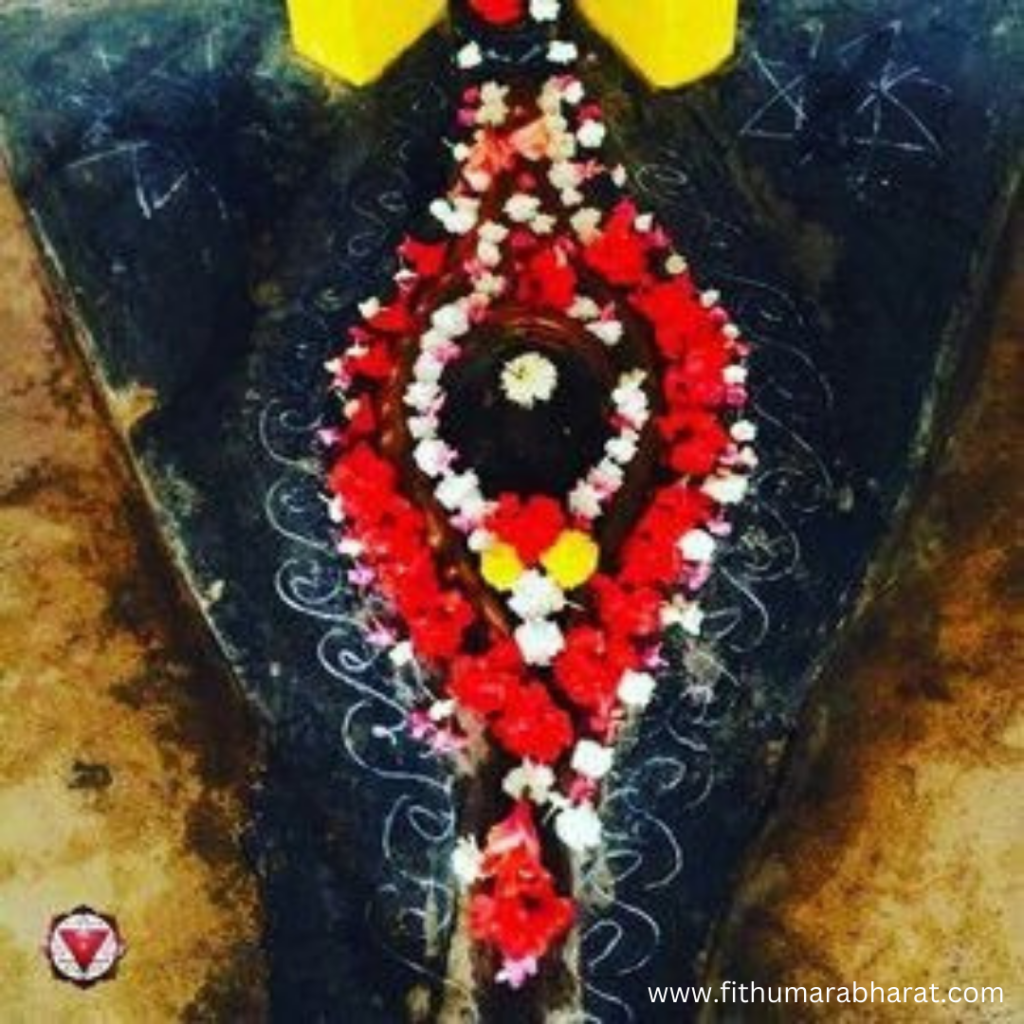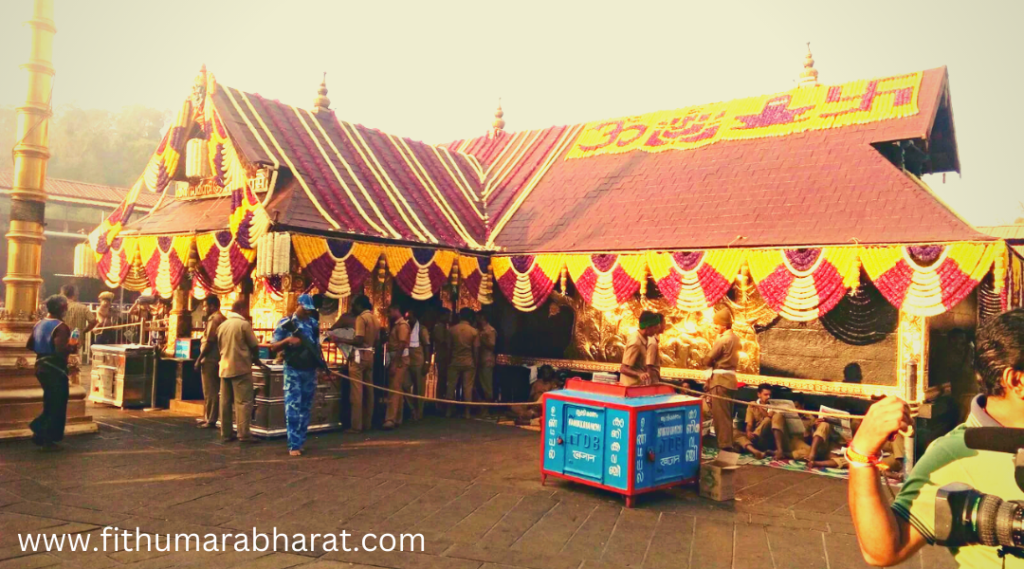This post is also available in:
हिन्दी
Are menstruating women considered impure in Hinduism?
During menstruation, women face challenges at many levels, such as social, menstrual stigma, shame and embarrassment, institutional challenges, etc(1)
But the biggest challenge is that people are not accepting women during menstruation and stop their movement in places of worship. Should We Visit Temple During Menstruation?
Today many mothers advise their daughters not to go to the temple during menstruation. The irony is that these mothers have too little knowledge to justify this “custom” with a solid reason. Without understanding the reason, they call it a religious rule.
Menstruation is a big taboo in our country but no one knows when – when this kind of uncivilized practice was labeled under the ideology of Sanatana Dharma.
Hinduism as a whole accepts menstruation and does not consider it taboo.
In Vedic times, women were “Happy to Bleed” because the society had a liberal line of thought and menstruation was considered a natural process. They were free to worship daily in spite of the so-called impurity.
Get a glimpse of the mythological story of Shiva Purana
The Shiva Purana states that Sati prayed incessantly for years to get Lord Shiva as her husband. Didn’t she menstruate when she was continuously worshipping ?
Whether you have read the Shiva Purana or not, you would know that Shiva performed Tandava by holding the dead body of Sati; Tandav – The dance of destruction. While trying to pacify her, Lord Vishnu cut the body of Mata Sati with his Chakra, parts of which fell at 108 different places – all of which later came to be known as Shakti Peethas.
Her cunt fell in the Nilachal hill west of Guwahati, Assam. That place is worshiped as Kamakhya Devi Temple. The temple has a Kamakhya Peeth, which is naturally formed in the shape of a yoni.

Specialty of Kamakhya Devi Temple:
Kamakhya Devi’s temple in India has an annual Ambuvasi Puja festival, in which the goddess is said to be undergoing her annual menstrual cycle. The temple remains closed for three days and opens on the fourth day with great festivities.
It is also said that the Brahmaputra river turns red during this time. Whether it is actually blood or vermilion applied by pundits, is an unanswered question. This is what tells the temple about Bleeding Goddess and the temple remains closed. Later, the holy water is distributed among the devotees.
It is ironic that people visit this temple and some even claim that it is the most auspicious place in the country, but when we openly talk about menstruation, the conversation turns into a whisper!
However, a priest at the Kamakhya Temple, Assam, eloquently remarked,
“That which is pure, we do not touch. And that which we do not touch is called forbidden.”
This is precisely the reason why a woman should not go to the temple. At that time the menstruating woman – is a living goddess, whose speed and audha are huge. When she visits the temple, the energy of the god or goddess present in the idol can be transferred to her, and the idol becomes lifeless. Menstruating women are prohibited from entering the temple to maintain the dignity of that goddess. So she was prevented from entering the temple. So it’s the exact opposite of what we think.
If Hinduism does not consider menstruation impure then why ban entry of all women in Sabarimala?
Unlike other temples, the Sabarimala temple restricts entry to all women of menstrual age (10 to 50 years).
Ayyappa’s “strict” form of celibacy is established
The Sabirmala temple is the seat of the “Ayyappa” deity. This temple is different from many other temples, but also different from other Ayyappa temples in some way. All worship, offerings, festivals and routines are based on the form of the deity in the temple.
There are many temples dedicated to various forms of Ayyappa. In various temples he presents himself as a child, teenager, adult, wife etc.
There are no restrictions for women or anyone in any of these temples.

At Sabarimala, Ayyappa is revered as a yogi who practices a very “strict” celibacy.
They are expected to follow the 8 strict precepts of brahmacharya, which range from ‘…not thinking about women’ to ‘staying away from women’.
Women are not allowed to enter the temple, so that the Ayyappa deity in the Sabirmala temple can retain its original character and aura.
“Sexual fluid” may be affected
Its effect will not be very good for women also. Because it is important for human life to continue that the sex substance is active. In men “semen” is the sexual fluid, and in women it is “menstrual” blood.
Both of these have life-giving properties and are considered more powerful.
“Celibacy” and “Spiritual beliefs” transform the sexual substance into energy which in Ayurveda we call ojas and tejas. The Sabarimala temple is known for strict celibacy. That’s why there will be different effects on the women coming here.
Think what will happen if this substance is converted into energy in women?
How powerful is sexual energy?
The answer is this – if women adopt practices that can alter their sexual energy, menstrual flow will reduce and ovulation may eventually stop.
Obviously, this will affect their ability to reproduce (fertility). If women stop menstruating, life will stop.
You can accept or reject the above explanation. After all, if temples have a negative impact on menstruating women, we need to be aware and look at it from a hygienic perspective. If nothing else, at least for curiosity’s sake, we should understand how temples actually affect the menstrual cycle.
Don’t bring Feminism into things we have no idea about, doing so can actually harm us.
The entry of men is restricted even in some of the major temples. The Brahma temple at Pushkar, for example, forbids married men from entering the inner sanctum.
How do temples affect menstruation from the point of view of Ayurveda?
Ayurveda is based on the tri-doshas (bio-energies) that govern the functions of the human body.
Out of the three types of doshas namely Vata, Pitta and Kapha, it is Vata dosha that can be explained by menstruation. More precisely, the subtype of Vata dosha is called Apana Vayu.
Apana means air going towards the downward direction. It is in the juice of the body.
Apana Vayu is responsible for the downward movement of substances out of the body, including the excretory (ejaculation, nightmare) processes. The downward movement of apana vayu is what causes menstrual flow. Any obstruction in this natural downward flow of apana can affect many functions in the body. Due to which there can be problems in the body.
Diet schedule in menstruation:
The purpose of all spiritual activities is to raise our energy upwards. This is the reason why we are asked not to eat anything before worship or going to temple. The process of digesting food and expelling it is due to the downward flow of apana vayu. And if we go on a full stomach, it is hindered by spiritual activity, that is, both our downward movement of excreta and the upward movement of energy will be affected.
In some cases, people who are engaged in continuous chanting for 5-6 hours, experience difficulty in movement due to upward bend of apana. Hence those following the spiritual path are advised to have a light and raw diet of fruits so that there is minimal interference with apana.
Spiritual activity – how can it hinder the process of menstruation?
In menstruating women, if apana vayu is pushed upwards, they may suffer physical pain and their flow may stop. This is the reason why menstruating women are asked to stay away from all places where the energy will reverse the apana downwards.

If menstruating women frequently visit ancient temples (which are known to have powerful energy centers) or do certain types of yoga (such as inverted asanas) during their periods, it may change their cycles & feel discomfort.
So what to do – should we go to the temple during period or not?
At the end-
Asking menstruating women not to enter the temple has nothing to do with the woman being impure.
So the next time someone says that a menstruating woman should not enter a temple because she is impure, we should explain the reason behind this practice, not just dismiss it as taboo.
And let her decide whether she wants to follow these practices or not.
Thank You 
In old age, there will be less chances of fracture! Include these “balance exercises” in your routine.
Women can do these 8 businessess – less investment, more profit
Why is financial independence important for women?


 Related blog, read here
Related blog, read here